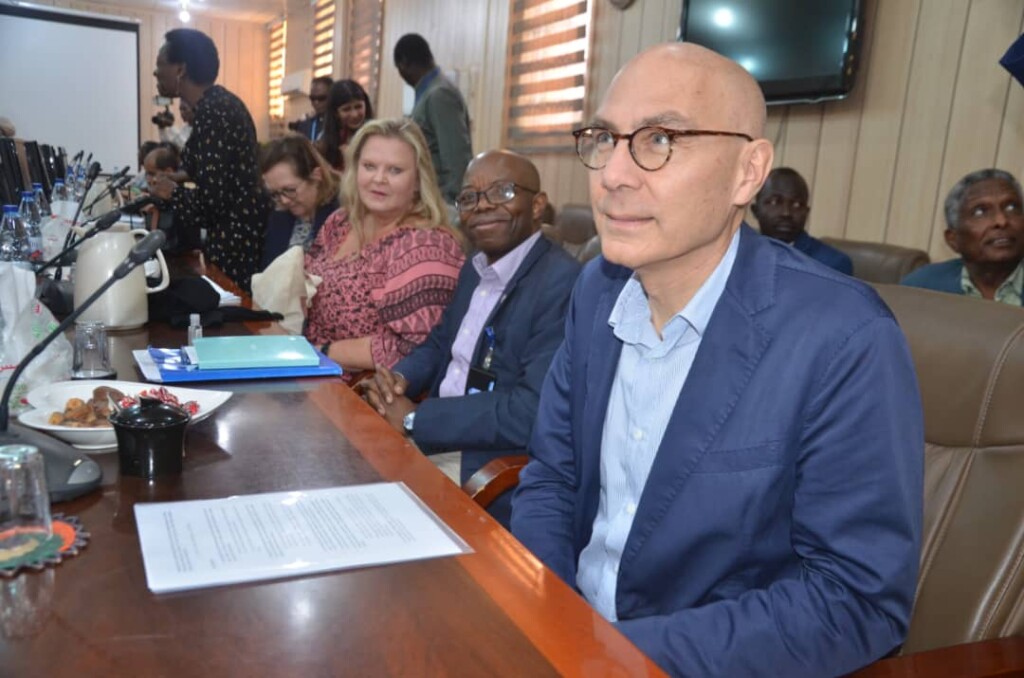UN High Commissioner: ‘All hands on deck, if civilian rule is to be restored in Sudan’
The United Nations High Commissioner for Human Rights, Volker Türk, concluded his official visit to Sudan yesterday. During the visit he met and discussed civilian transition with various stakeholders, including Chairman of the Sovereignty Council, Lt Gen Abdelfattah El Burhan, and Deputy Chairperson Lt Gen Mohamed Hamdan ‘Hemeti’. Türk also met many civil society representatives in Khartoum and North Darfur’s El Fasher, where a number of issues concerning human rights abuses were raised and documented.
 United Nations High Commissioner for Human Rights Volker Türk during his official visit (social media)
United Nations High Commissioner for Human Rights Volker Türk during his official visit (social media)
The United Nations High Commissioner for Human Rights, Volker Türk, concluded his official visit to Sudan yesterday. During the visit he met and discussed civilian transition with various stakeholders, including Chairman of the Sovereignty Council, Lt Gen Abdelfattah El Burhan, and Deputy Chairperson Lt Gen Mohamed Hamdan ‘Hemeti’. Türk also met many civil society representatives in Khartoum and North Darfur’s El Fasher, where a number of issues concerning human rights abuses were raised and documented.
In a statement by the High Commissioner, Türk stated that transitional justice “is never easy and accountability has many facets to it, especially in a context as complex as that in Sudan”. He went on to emphasise the importance of acknowledging the “harms done to victims”, adding that perpetrators should be brought to justice “regardless of their affiliations”.
The UN official highlighted just how precarious in nature a potential civilian transition like this could be in Sudan. Türk called on “all sides involved in the political process to go the extra mile”. He stated a “prompt restoration of civilian rule in the country would bring to an end the uncertainty that has left much of the population in peril”.
'We will need all hands on deck to prepare now for “the day after” – both in Sudan and at the international level' – Volker Türk.
According to the UN commissioner, his office is ready to facilitate Sudan’s strengthening of civic and democratic space. He urged all those involved in the pursuit towards a new transitional framework to “take bold steps towards consensus”. Türk also implored stakeholders to “set aside entrenched positions, power games, and their personal interests, and to focus on the common interests of the Sudanese people”.
The UN official stated that despite the “grim situation”, referring to Sudan’s economic and humanitarian crises, the country has “the tools to chisel away at some of these challenges”. He used the Juba Peace Agreement as an important example of how issues such as “power-sharing, gender equality, resource-sharing, accountability, and transitional justice”, can be solved if the agreement is implemented.
In response to the recent violence seen in the Blue Nile region and West Kordofan, Türk stated that the National Plan for the Protection of Civilians is also key in providing “much-needed security” in volatile and contested areas in Sudan.
Türk pointed out that building trust between the authorities and the people, despite decades of entrenched repression, will be the biggest challenge Sudan faces.
He went on to add that in his discussions with the authorities, he consistently highlighted the need for trust-building measures to “earn the confidence of the people”.











 and then
and then